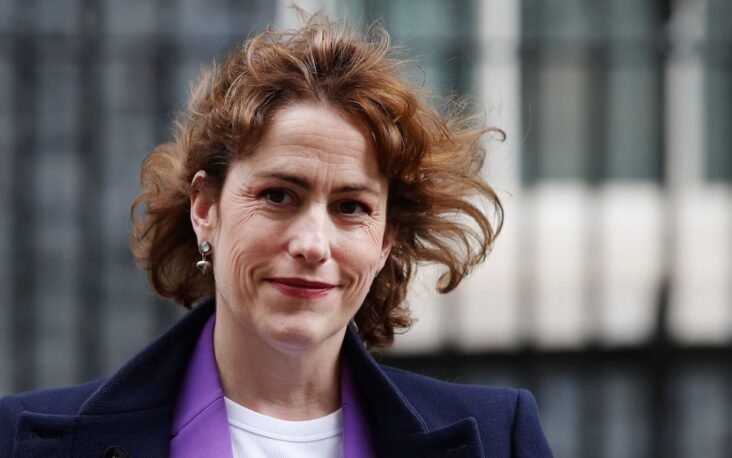
The health service is to limit trans ideology with new constitution
The NHS is to crack down on transgender ideology in hospitals, with terms like “chestfeeding” set to be banned.
Victoria Atkins, the Health Secretary, will this week announce a series of changes to the NHS constitution which sets out patients’ rights.
Referring to “people who have ovaries” rather than “women” will also be prohibited under plans to ensure hospitals use clear language based on biological sex.
The new constitution will ban transgender women from being treated on single-sex female hospital wards to ensure women and girls receive “privacy and protection” in hospitals.
Patients will also be given the right to request that intimate care is carried out by someone of the same biological sex.
It follows concerns from patients about biological men being allowed in women’s hospital wards. NHS guidance has previously stated that trans patients could be placed in single-sex wards on the basis of the gender with which they identified.
Kemi Badenoch, the women and equalities minister, has backed calls for a public inquiry into the “pervasive influence” of transgender ideology in the NHS.
The new NHS constitution will emphasise the importance of using “sex-specific” language in the health service after references to women were expunged from advice on the menopause and diseases such as cervical and ovarian cancer.

A government source said: “The Government has been clear that biological sex matters, and women and girls are entitled to receive the protection and privacy they need in all healthcare settings.
“Our proposed updates to the NHS constitution will give patients the right to request same-sex intimate care and accommodation to protect their safety, privacy and dignity.”
The document sets out the rights of patients and medical staff. All NHS bodies, as well as private and third-sector providers that supply NHS services, are required by law to take it into account when making decisions. The changes proposed this week will be subject to an eight-week consultation.
The updated constitution will state that placing transgender patients in single-room accommodation does not contravene equality laws as long as it is for an appropriate reason, such as respecting a patient’s wish to be in a single-sex ward.
Maya Forstater, chief executive of the campaign group Sex Matters, said the changes represent a “major step” towards reversing NHS England’s “capitulation to the demands of gender extremists, which has damaged policies and practices, created widespread confusion and harmed patient care”.
She added: “These much-needed changes to the NHS constitution will help secure essential sex-based rights in healthcare across England.
“Clear language, single-sex wards and access to intimate care provided by a health professional of the same sex are crucial to the wellbeing and safety of female patients. They should never have been compromised.”

Last year a report by the think tank Policy Exchange said NHS trusts were compromising women’s rights by providing same-sex intimate care based not on their biological sex but their self-declared gender identity.
In 2021, Brighton and Sussex University Hospital became the first NHS trust in the country to formally implement a gender-inclusive language policy for its maternity services department – which will now be known as “perinatal services”.
Midwives have been advised to use gender-inclusive language and staff were provided with a list of alternative terms to use when addressing patients, including “mothers or birthing parents”, “breast/chestfeeding” and “maternal and parental” in all general communications.
Instead of saying “breastmilk”, they can choose from “human milk” or “breast/chestmilk” or “milk from the feeding mother or parent”.
There has been fierce debate around attempts to reduce the use of the word “woman” in discussions on subjects including pregnancy and childbirth, and any move to do so has provoked ire from some feminists.
Author JK Rowling was vilified after she questioned a decision to use the term “people who menstruate” in a headline.
Earlier this month, a group of more than 130 MPs, peers, doctors, psychiatrists and academics wrote to the Prime Minister to demand a public inquiry into transgender ideology in schools and the NHS.
They argued that the treatment of “confused and vulnerable” children by medical professionals has been a “major scandal”.
It came after a report by Dr Hillary Cass, a leading paediatrician, which found that the evidence for allowing children and young people to change gender is built on “shaky foundations”.
The landmark review said that social transitioning should be approached with “extreme caution” because “we simply do not know the long-term impacts”.
In response, the NHS is to review all transgender treatment it provides, including to adults, and treatment for any new patients aged 16 and 17 seeking to change gender at adult clinics will be paused immediately.



